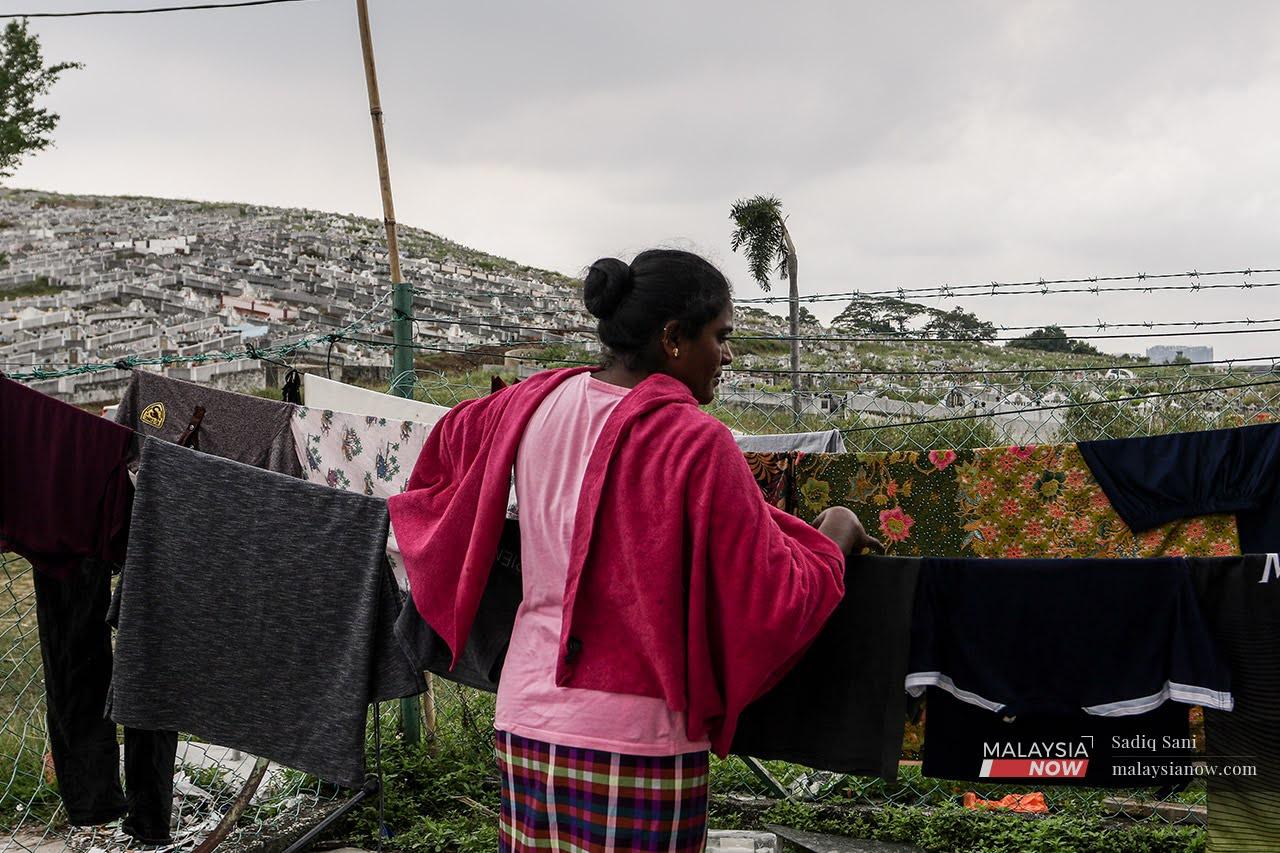Spending Deepavali in a graveyard
There's no place like home, but for Mogana and her family who live in a cemetery in Klang, even this will soon be taken away from them.
Just In
While Hindus across the country celebrate Deepavali, the first major festival since Covid-19 restrictions were eased on the back of a successful vaccination programme, there will be no lighting of lamps for 25-year-old Mogana and her family this year.
Sitting on a bench outside her home, Mogana says this year has been even worse for them than the year before, when Covid-19 first hit and no vaccines were yet available.
The bleakness of her words is underscored by the location of her home itself: an abandoned temple in the Buddhist section of the Meru Christian Cemetery in Klang.
Mogana and her family have lived in the graveyard for nearly as long as she can remember. Her grandparents, uncle and aunt moved in first some 25 years ago, and the rest of her family followed 10 years later.
Now, all 17 of them including three small children share the rooms in the temple, which the landowner allows them to have in exchange for their work cleaning the building itself as well as the graveyard out front.

While the little they earned was enough for them to survive, since the pandemic few have come to visit the graves.
“There are only a few jobs we can do here anymore,” Mogana said. “Some of us collect scrap metal and clean houses. But there’s not much we can do.”
With barely anything tucked away, Deepavali celebrations are a distant dream. There is no money for new clothes or even food as every sen was spent trying to survive the pandemic.
“Deepavali this year is much worse than last year,” Mogana said. “If we can’t celebrate it this year, maybe we should just celebrate next year.”

Still, Deepavali only comes once a year and her family is reluctant to let the occasion slide by for the children.
“We have three little kids in this house. We need to at least make sure they know it is Deepavali, and let them be happy,” Mogana said.
How, though, is the question.

Her oldest cousin is nine years old and the youngest was born just five months ago. Mogana, who knows that growing up in a cemetery is not a conducive environment, worries about them.
“When I was 14, I had to quit school because I couldn’t afford it, and I started working to support my family,” she said.
Her hope is that life will be different for her cousins, and that they will somehow be able to continue their studies to the highest level.
But she knows that this will be next to impossible as long as they must call the cemetery their home.

What she wants most of all is for her family to live in a proper house. And this is a wish that has recently taken on a note of urgency.
“A year ago, we were told by the landowner that this building was going to be demolished as they wanted to put up a new one.”
Fortunately for them, this was postponed due to the Covid-19 pandemic.
“But they are planning to resume the plan by the end of this year,” Mogana said. “We don’t know where we will go after this.”

She is certain that if provided with a place to live, they will be able to meet the monthly rent.
“We just have a problem finding a house and paying the deposit as this requires us to have a huge amount of money all at once,” she said.
As things stand, with no money and no family able to take them in, their future is anyone’s guess.
“We are poor, so people don’t remember us even when we are family members,” Mogana said.
Subscribe to our newsletter
To be updated with all the latest news and analyses daily.
